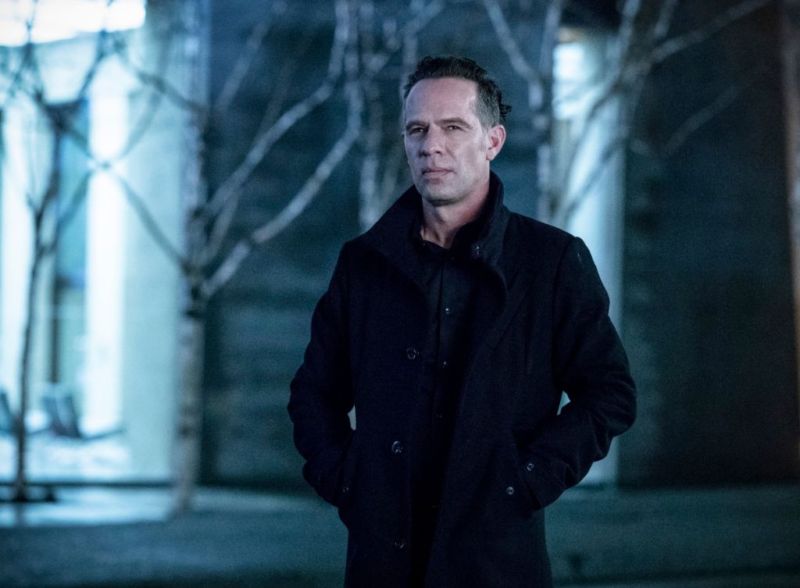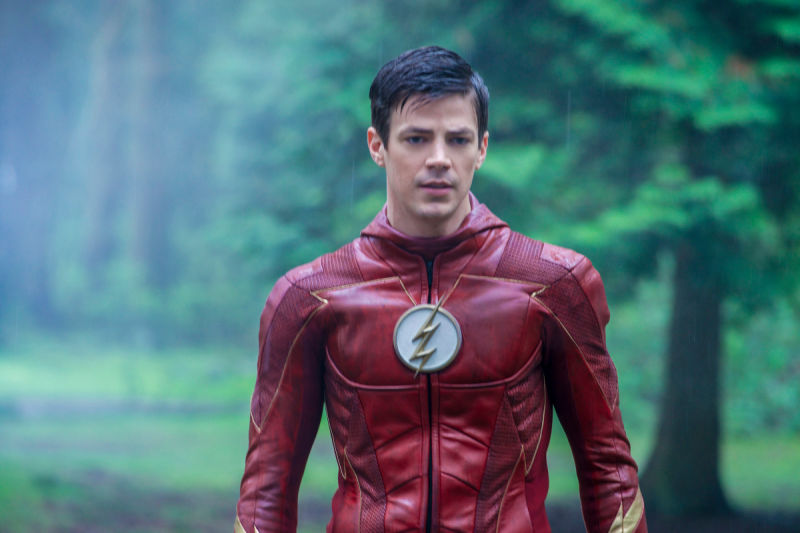Spoiler Alert: The Following contains spoilers for season 4 of The Flash, including last night’s season finale. Read ahead at your own risk!
I’ve been growing wary of the formula on The Flash as of late. The overarching story has followed roughly the same path in each of the show’s four seasons. Team Flash is introduced to a new Big Bad that purports itself to be stronger and smarter than our hero, Barry Allen. Chasing various MacGuffin, the team proceeds to lose the lion’s share of its battles against said Big Bad over the course of the next 20+ episodes, pausing intermittently for filler episodes that range in quality, before scoring one final Ultimate MacGuffin in the finale, as they finally manage to best the villain once and for all, right before some crazy, long-teased twist sets up what will happen in the next season.
To be honest, I’ve largely been okay with this formula because The Flash still manages to be a decent enough show working within the confines of this formula. It’s generally well-written, it’s funny, I care about almost all the characters (who have great chemistry with one another), and the show is good about introducing new interesting characters and compelling guest stars along the way. The world of The Flash is rich and filled with great Easter Eggs for fans of the comics, and there’s always something interesting lurking around the corner, even if the show tends to operate mostly in a sort of dulling mediocrity.
With that in mind, season 4 had a lot of both the good and the bad. As it pertains to said formula, the writers made a conscious effort to break the cycle, notably by making this season’s Big Bad something other than a Speedster for once. After Reverse-Flash, Professor Zoom and Savitar, not only was the new villain (Clifford DeVoe, AKA The Thinker) not a speedster, but it was actually a plot point that he was was completely disinterested in The Flash’s speed, even though much of his arc was about absorbing other metahuman powers. The way the show explains why in the finale is even pretty clever. DeVoe is a good character and the show sets him up and a real threat to The Flash regardless of his lack of speed. It’s a refreshing workaround to the usual archetype of Barry’s nemeses. But it sort of feels like a half-measure, especially after the way he was disposed of in the season finale. Lack of speed and future knowledge aside, DeVoe is pretty much the same villain The Flash always faces; he’s super smart, he’s planned for every contingency and he’s always ahead of his opposition, until the plot requires him not to be.
Still, the season shines in other areas, notably in additions it made to its cast. The standout is easily Hartley Sawyer as Ralph Dibney, the schlubby private eye who gets a second chance when he’s gifted with the power of elasticity and goes on to become Elongated Man. The character and the actor portraying him easily fit into the strong chemistry the cast already has, which is rare to see in the fourth season of a show. He’s quick-witted, funny and has a compelling arc of redemption. The show even manages to kill him and bring him back in a way that doesn’t feel cheep, and that still has emotional stakes for the team, especially Barry, who feels responsible for losing the life of one of his teammates.
The show also added Danielle Nicolet as Cecille, a prosecutor who goes on to marry Joe and have his child. Cecille grew on me as the season went on, especially her late-season arc, which manages to uproot most of the tropes involved with pregnancy on a show like this. She develops gestational metapowers that become the key to defeating DeVoe in the finale, all while she goes into labour. Having a kid in the middle of a crisis is a trope that most would agree has overstayed its welcome on television, but doing it in the middle of a world-ending calamity is a nice twist.
Beyond Ralph and Cecile, season 4 also introduced us, among others, to Amunet Black (Katee Sakhoff doing a wonderfully ridiculous cockney accent, Hazard (Sugar Lyn Beard), Breacher (Danny Trejo) and Big Sir (Bill Goldberg), among others. We also got to see Tom Cavanagh try his hand at some really ridiculous versions of Harrison Wells through the Council of Wells, a pool from which the show might have to draw on in season 5 as the show bid farewell to this version of Harry, who winds up suffering the irreversible effects of DeVoe’s plan to lobotomize humanity and decides to leave Team Flash to spend more time with his daughter.

Season 4 also gave us “Enter Flashtime”, an episode that takes place almost entirely in the slowed-down version of time that Barry can experience, as he works to stop a nuclear bomb from destroying the city after it’s already detonated. It’s an awesome episode that immediately enters the show’s pantheon of classics, and even in a season that’s filled with a lot of mediocrity, it proves that The Flash is still capable of doing great things. It’s an episode that was really needed in a season that included “Girls Night Out”, where Felicity comes to town to celebrate Iris’ bachelorette, and “Run Iris Run”, the one where Iris acquires Barry’s powers. Some internet perusal suggests that some may disagree, but I thought last night’s finale was pretty good too. In “We Are The Flash”, Barry enters DeVoe’s mind with the help of Cecille’s powers and DeVoe’s his estranged wife Margaet to stop him, where he finds Ralph’s consciousness still kicking despite DeVoe being in control of his body. Together, they find an army of Mind DeVoes in order to take back control of Ralph’s body and put an end to the Thinker’s plan to lobotomize the entire planet. Sure it’s nonsense, but it’s the good sort of nonsense.
As a whole, I have to wonder whether this season of The Flash holds up. In retrospect, it feels so telegraphed. Barry and the team fail almost every episode at DeVoe’s hands before conveniently and neatly beating him in the finale. The legitimately great episodes are few and far between although, to be fair, there aren’t that many episodes that I’d qualify as abjectly bad either. This season has existed in this space where I’m more than glad to enjoy the show as it airs weekly, but that seems to have fallen a few steps from where I originally thought a Flash show would be able to go at this point in its run. But season 4 leaves us with another cliffhanger and more big promises as the girl who has been subtly meddling with the team’s affairs reveals herself to be Barry and Iris’ future daughter (a twist that, let us be serious, we all saw coming ever since she first appeared all the way back in the Nazi crossover), back from the future to ask for their help fixing what she claims to be a mistake of Gob-like proportions.
I’m certainly not going to be dropping The Flash ahead of season 5, it’s enjoyable even if it tends to fall into the traps of its own formula more often then it’s capable of being subversive. But I’m definitely going to have to be more cautious. We’ve already been through this with Arrow, a show I finally managed to drop after the snoozefest that was the first half of this past season. Supergirl isn’t making a great case for itself either as it bogs itself down with relationship drama every chance it gets. The Flash is at least fun as it goes off the rails, but the writers need to go back to the drawing board and figure out how to do something new and different for season five, and not just shallow changes that amount to a slightly more detailed reskinning of the main villain. Although I won’t speculate on what they might have planned for next year.
Season 4 of The Flash was a step backwards for the show, despite efforts from its writers to switch things up. But its ability to remain entertaining and introducing compelling new elements every so often allowed it to rise above the lower end of the CW DC dramas. I’m comfortable giving it a decent 6.5 out of 10 bus metas, while last night’s season finale, We Are The Flash, gets 7.5 time travelling daughters out of 10.
